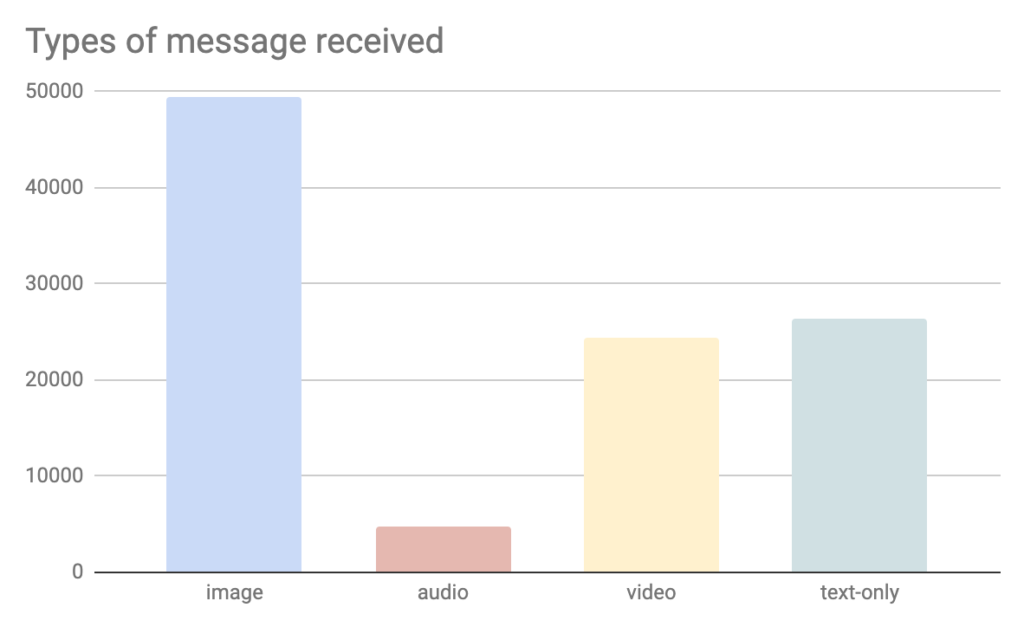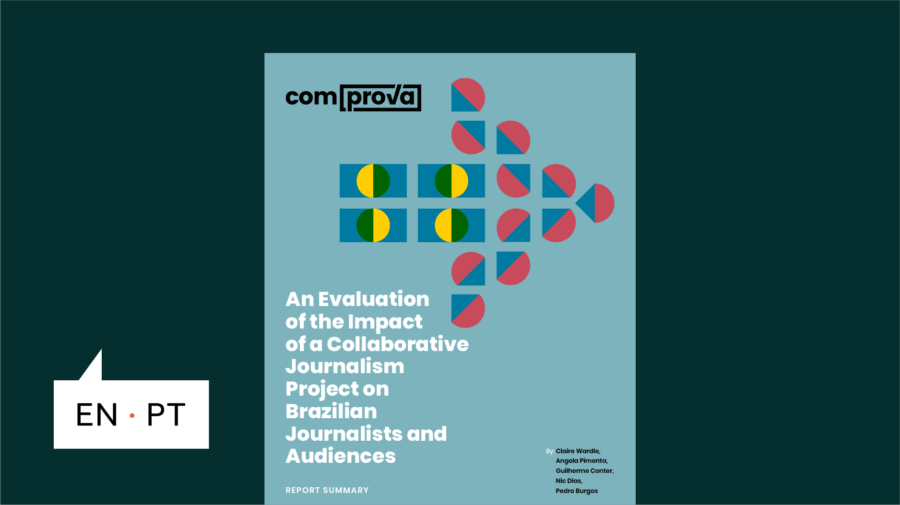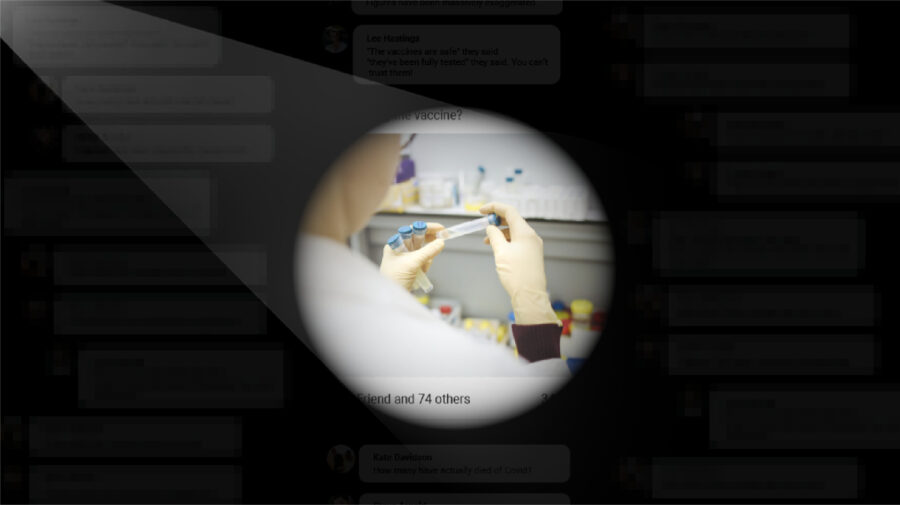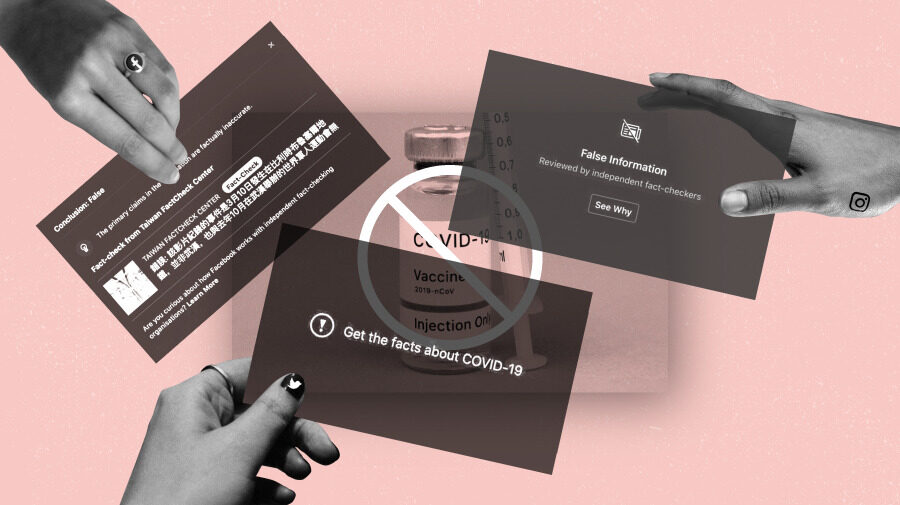New research sheds light on the impact of collaborative attempts to slow down the spread of misinformation in the lead up to elections. These include the value of setting up mechanisms for encouraging the audience to highlight rumours and misleading content circulating in closed messaging apps and groups; the need to use advertising on social media to reach audiences who don’t normally engage with journalism or fact-checking; the importance of newsroom collaboration which minimises duplication through pooling resources, maximises the amplification of any debunks, and encourages newsrooms to make collective decisions about when and how to report on disinformation to prevent unnecessary oxygen of rumours.
- Read the Comprova Summary Report (English) (PDF)
- Read the Comprova Summary Report (Portuguese) (PDF)
- Read the Comprova Full Report (PDF)
Comprova was launched in response to plummeting trust in the Brazilian media, which dropped by 17% between 2017 and 2018 according to the Edelman Trust Barometer.
The Comprova coalition produced 146 debunks that were published on a central website, but these reports also acted as a catalyst for additional reporting by the individual newsrooms. In total, the partner newsrooms published or broadcast 1,750 stories connected to the original reporting by the Comprova coalition. The collective audience for this output was significant, and according to a representative survey, Comprova content reached 1 in 4 Brazilian internet users ahead of the election. Part of this reach was a result of Facebook and Twitter ads, and the research also underlines the importance of this type of targeted advertising to reach audiences who don’t normally interact with the news media.
The evaluation was edited by Dr Claire Wardle and includes analysis carried out by four researchers: Pedro Burgos, professor at Insper and ICFJ Knight Fellow, Guilherme Conter of Federal University of Parana, Nic Dias of the Shorenstein Center at Harvard’s Kennedy School and Angela Pimenta of Projor.
The research also found that Comprova’s reports changed readers’ beliefs, and that 40% of survey respondents agreed that Comprova helped them to decide their vote. More than 70% said they shared or discussed Comprova debunks in order to inform someone, with 80% of respondents saying they trusted Comprova’s reporting.
The coalition of newsrooms set up a dedicated WhatsApp ‘tipline’ during the election, and encouraged their audiences to submit examples of content they thought was suspicious. They received 105,078 messages from the audience in the 12 weeks leading up to the election, including 87.6GB of attachments including images, video and audio messages.
As part of the research launched today, the database of WhatsApp messages will be made available to researchers. The database is thought to be the largest of its kind. Please contact us using this form (English) (Portuguese) to request access to the Comprova data for your research.

Graph: Types of Whatsapp messages received
Key lessons for understanding misinformation on WhatsApp:
- Misinformation took many formats on WhatsApp, including audio, video and text, but images were submitted most frequently.
- WhatsApp was mostly a closed environment. There were very few links to the wider web.
- The most viral messages, according to our sample, were from then-candidate Jair Bolsonaro’s voters worried about—and creating stories around—the integrity of the elections.
- Comprova editors couldn’t find a number of conspiracy theories that tippers shared with them when searching the larger web, which made verification work more challenging.
First Draft Executive Chair Claire Wardle said: “These types of collaborative projects are hard. It took multiple meetings, design sessions and trainings to get the project off the ground. Seeing these results emerge during the evaluation process was so heartening. At a time when we’re focused on the size of the challenges posed by misinformation, Comprova shows what is possible if different groups work together.”
Daniel Bramatti, the President of Abraji (Brazilian Association of Investigative Journalism) said, “This year we will not have elections in Brazil, but we can see that politically motivated groups continue to drive the dissemination of misleading content. The Comprova project will provide a public service by analysing and combating this trend.”
Comprova was managed by Abraji, designed by First Draft and supported by the Google News Initiative and the Facebook Journalism Project.
To stay informed, become a First Draft subscriber and follow us on Facebook and Twitter.






